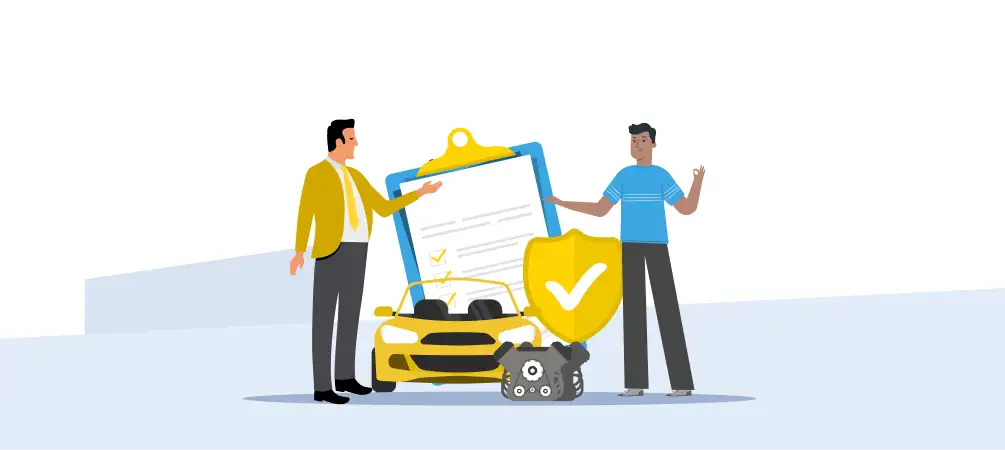Aftermarket Car Horn Installation: Legal Guide
Sometimes when we buy a car, we love everything about it, except one thing - how it sounds! Luckily, the car horn is something you can easily change after you buy the car. Even while you do so with ease, you need to think about the legal and practical factors.
If you’re looking to change your car horn, you will be reassured to know that you are not alone. A lot of Indian drivers add aftermarket horns to make their vehicle horns louder, or change the tone, or replace ones that aren't working. But these kinds of changes have to follow the rules set by the government to avoid penalties or other problems.
This blog explains the legal restrictions for car horns in terms of decibels or sound level, the various kinds of aftermarket options in India, and how to install car horns safely and correctly.

Table of Contents
What Are the Legal Requirements for Aftermarket Horns in India?
Before you acquire a new horn, you should know what Indian law says about using horns:
According to Rule 119 of the Central Motor Vehicles Rules (CMVR), 1989:
- When evaluated from a distance of 7.5 meters, horns should not be louder than 100 decibels.
- You can't use multi-tone or musical horns on public roads.
- In quiet zones, which include places near hospitals, courts, and schools, horns are not allowed at all.
Installing an aftermarket horn that violates these norms can attract a fine under Section 190(2) of the Motor Vehicles Act, which may be up to ₹10,000 and a licence suspension for three months.
How to Choose the Right Aftermarket Horn for Your Vehicle?
Most of us don’t know any brand names or manufacturer names when it comes to car horns. Even though one wants a different sounding horn, it may be confusing to figure out what alternative is permissible or suitable. Given how much we use the car horn in our everyday driving, it is important to choose one that is reliable and best suited to your car. Use this comprehensive checklist to make an informed decision.
1. Check for AIS Certification
Ensure that the horn is approved by the Automotive Industry Standards (AIS) of India. AIS-compliant horns fulfil decibel and tone requirements.
2. Consider the Type of Horn that will suit your car
- Disc Horns: These are compact horns that make a high-pitched sound. In general they’re considered suitable for small cars and city driving. Disc horns are usually available at an affordable price point. They are also relatively easy to install due to their compact size. Importantly, they usually meet the legal decibel limit for car horns and fall well within the permissible limits.
- Snail Horns: Known for their deeper, smoother tone, these are a step up from disc horns. They're popular among mid-sized car owners for cars like hatchback and sedans. These horns provide more volume without being harsh or aggressive in the tone. In terms of size, these are a bit bigger than the disc horns but could still be preferred by those who want the different tone.
- Trumpet Horns: These produce a loud, deep sound and one usually finds them used in SUVs or highway-driven vehicles. While effective in cutting through traffic noise, some models can cross legal limits for sound level. Always check the decibel rating before installing a trumpet horn.
- Air Horns: Air horns are quite loud and not allowed on private automobiles driven on Indian roads and highways. Most of the time, only emergency services and cars with special licenses can use these. If you get caught with an air horn in your car, you could get fined or have your car taken away during an inspection. So, it's best not to have this type of horn for your own automobile.
3. Sound Level Compliance
When you choose a horn, ensure to check the manufacturer information on the decibel levels. Horns that are rated between 90 and 100 dB are what you should look for. This is the permissible maximum for car horns in India. Use the above categorisation of type of horns along with decibel level to find the right one for your vehicle.
4. Brand Reputation
Most of the time, brands that make many of the car and truck accessories also make car horns. Hella, Roots, Bosch, and Uno Minda are all well-known brands that make aftermarket automobile horns that last a long time and are safe to use. It might be wise to stay away from buying things that aren't branded or from producers you don't know because the certification or quality criteria might not be satisfied or documented correctly.
What Tools and Materials Are Needed for Installation of Aftermarket Horns in India?
Before you start installing, make sure you have the following:
- New horn unit (make sure the voltage is right, usually 12V)
- Wiring harness (if not already provided)
- Set of relays and fuses
- Screwdrivers and a set of socket wrenches
- Insulation tape and zip ties
- Multimeter (for checking voltage, if needed)
Using a relay is very important if your horn upgrade uses more current than the previously installed device. This will save the car's electrical system from shorting out and becoming damaged.
Step-by-Step Guide to Installing an Aftermarket Horn
It's not just about wiring when you install an aftermarket automobile horn. Picking a legal product, putting it in safely, and making sure you won't get in trouble for breaking noise limitations are all part of the procedure. Follow these steps to accomplish it right:
1. Pick a Compliant Horn
First and foremost, pick a horn that is legal in India. It must be AIS-certified, not musical, and within the legal limit for car horns, which is 93 dB(A) ±5 dB(A) for private vehicles.
Some popular legal aftermarket car horns in India include:
- Roots Vibromini
- Bosch Symphony
- Hella Supertone
- Roots Megasonic
- Uno Minda D95
These models are known for their reliable performance and are more likely to stay within compliant noise thresholds when installed properly.
2. Disconnect the Battery
Unplug the battery. Safety first. To avoid short circuits, always unplug the electrical/negative connection of the automobile battery before you start your installation.
3. Locate the Mounting Point
Most cars have their horns located behind the front bumper or near the grille. Use brackets that are already there so you don't have to drill or mess with the body of the car.
Check to see if there is adequate space to put the new unit in if you are replacing a smaller disc horn with a bigger horn.
4. Install a Relay and Fuse (If Needed)
Some horns draw more power than the stock setup. In such cases, a relay and 15A fuse should be installed to protect the wiring and switches.
For instance, the Bosch Symphony and Uno Minda D95 often include relay kits in the box—always use them for safe performance.
5. Wire and Secure the Horn
- Use proper connectors and insulate all wiring.
- Avoid routing wires near hot engine parts or moving components.
- Ensure the horn is mounted firmly to avoid vibration damage.
6. Test Loudness and Function
After reconnecting the battery:
- Test the horn functionality
- If available, use a decibel meter to check that sound output doesn’t exceed 100 dB(A) at a 7.5-metre distance
7. Honk Responsibly
Even with a legal horn, excessive use can still land you in trouble. The Noise Pollution Rules, 2000 restrict honking in silence zones and during night hours in residential areas (10 pm–6 am). Always follow local regulations.
Troubleshooting Common Installation Issues
Even with correct wiring, issues can still happen. Here’s how to resolve them:
| Problem | Likely Cause | Solution |
| Horn not working | Faulty ground, no power | Recheck ground wire or fuse |
| Weak sound | Low current | Use a relay and thicker wire |
| Horn always on | Incorrect relay wiring | Review relay pinout |
| Intermittent horn | Loose connectors | Secure with crimp sleeves |
If the horn still malfunctions, test it directly with a 12V battery to verify whether the horn unit is working.
Summing Up
Installing an aftermarket horn may seem like a minor tweak, but while doing so, one must still do so with the approach of proactive, safety-first car ownership. The car horn’s function is to alert others on the road and enable safe motoring. Even so, in the unfortunate event of any accident, it is your insurance that protects you when things go wrong and hence no aftermarket installation should interfere or disrupt the protection provided by the insurance.
If you’re someone who doesn’t settle for factory defaults—why should you when it comes to your Car Insurance?
Shriram Car Insurance provides more than just the basics. With features like:
- Affordable yet customisable policies
- Popular add-ons like Zero Depreciation Cover, Roadside Assistance and Personal Belongings Cover
- Zero paperwork, quick claims and easy renewals
- And a rewarding No Claim Bonus for claim-free years
It’s a solution built for smart, everyday drivers who value both flexibility and dependability. Because safety doesn’t end with your horn—it extends to your coverage too.
With this blog as your guide, hope you can make an informed decision about your car horn without impacting your car’s safety and protection.
FAQs
1. Is it legal to install a louder aftermarket horn in India?
Yes, you can install a different and /or louder horn, provided it complies with AIS certification and does not exceed 100 dB in terms of sound level. Musical and multi-tone horns are banned.
2. Can I install the horn myself?
Yes, it's usually easy to install a car horn with just a few tools and some help. If you need to install complicated wiring or high-powered equipment, though, go to a qualified installer or an auto shop that offers aftermarket services and accessories installation. If you don't know much about the car's wiring and systems, getting aid from an expert is probably your best option.
3. Will my warranty be void if I install an aftermarket horn?
Not always. But if you install it wrong and it damages the electrical system, sections of your guarantee may not be valid. This is why you need to be very careful while choosing and putting in a car horn.



 7486
7486


















